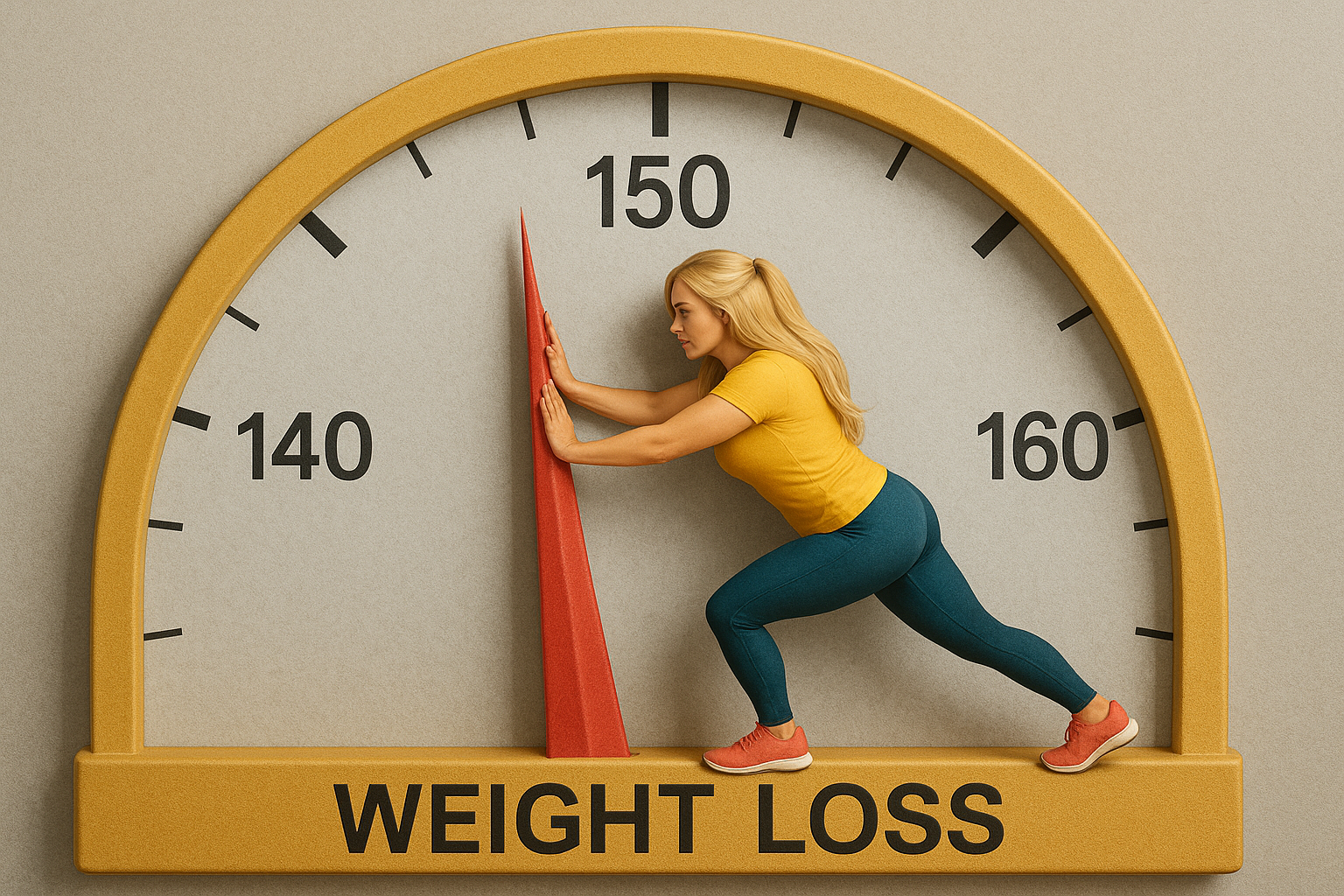Keeping the Weight Off: Your Guide to Thriving After GLP-1 Weight Loss

Congratulations! You've reached your weight loss goal with the help of GLP-1 medications. That's a huge accomplishment, and you should be incredibly proud of your dedication and hard work. Now, the next exciting chapter begins: maintaining your success and enjoying a healthier, more vibrant life.
It's completely normal to wonder, "What now?" after relying on GLP-1 medications to help you shed those pounds. This guide is here to walk you through the key strategies and considerations for keeping the weight off long-term. Think of it as your roadmap to sustained success, filled with practical advice to help you navigate this new phase.
The Role of GLP-1 Medications in Maintenance: What's Next?
One of the most common questions is whether you'll need to continue your GLP-1 medication. For many people, these medications have not only helped with weight loss but also with managing hunger cues and promoting satiety. The reality is that obesity is often a chronic condition, much like high blood pressure or diabetes. This means that ongoing management is frequently necessary.
Continuing with a Maintenance Dose:
Many healthcare providers recommend continuing GLP-1 medication at a maintenance dose. This isn't a step backward; it's a proactive approach to help you sustain your hard-earned results. These medications often work by regulating appetite and metabolism, and stopping them abruptly can sometimes lead to a rebound in hunger and potential weight regain.
What is the "Best" Maintenance Dose Strategy?
This is a very individual question, and there's no one-size-fits-all answer. The "best" strategy is the one that works for you and is determined in partnership with your healthcare provider. Here's what might be involved:
- Gradual Tapering: Your doctor might slowly reduce your current dose to find the lowest effective amount that helps you maintain your weight and manage hunger without significant side effects.
- Consistent Lower Dose: You might stay on a consistent, but lower, dose than what you used for active weight loss.
- Intermittent Use (Less Common and More Experimental): Some emerging research explores less frequent dosing, but this is not yet standard practice and would require close medical supervision.
Key Questions to Ask Your Healthcare Provider:
Open communication with your doctor is crucial. Here are some important questions to discuss:
- "Given my weight loss and overall health, do you recommend I continue with a maintenance dose of my GLP-1 medication?"
- "What are the potential benefits and risks of continuing versus stopping the medication for me personally?"
- "If we continue the medication, what would be the proposed maintenance dose and how will we determine it?"
- "How often will we monitor my progress and the need for medication during the maintenance phase?"
- "What are the signs that might indicate my current maintenance strategy needs adjustment?"
- "Are there any long-term side effects I should be aware of with continued use at a lower dose?"
- "What is your experience with other patients who have transitioned to maintenance on this medication?"
- "If I do stop the medication, what is the plan if I start to regain weight?"
Remember, your healthcare provider is your partner in this journey. Don't hesitate to ask questions and express any concerns you may have.
Fueling Your Body for Lasting Success: Diet and Good Eating Habits
Medication can be a powerful tool, but sustainable weight management always comes back to nourishing your body with the right foods and building healthy eating habits. The good news is that your GLP-1 medication has likely helped you become more attuned to your body's hunger and fullness cues. Now, let's build on that!
Focus on Whole, Unprocessed Foods:
- Lean Proteins: These are your best friends for satiety and muscle maintenance. Think chicken breast, fish, beans, lentils, tofu, and lean cuts of beef. Aim to include a protein source in every meal.
- Fiber-Rich Vegetables and Fruits: Load up your plate with colorful veggies and enjoy fruits in moderation. They provide essential vitamins, minerals, and fiber, which helps you feel full and supports good digestion.
- Whole Grains: Choose brown rice, quinoa, oats, and whole-wheat bread over refined grains. They provide sustained energy and more fiber.
- Healthy Fats: Incorporate sources like avocados, nuts, seeds, and olive oil. Healthy fats are important for hormone production and can also contribute to feeling satisfied.
Mindful Eating Practices:
- Listen to Your Body: GLP-1 medications often help with this, but continue to practice paying attention to your hunger and fullness signals. Eat when you're truly hungry and stop when you're satisfied, not stuffed.
- Portion Control: You've likely become accustomed to smaller portions while actively losing weight. Try to maintain this awareness. Using smaller plates can be a helpful visual cue.
- Eat Slowly and Savor Your Food: It takes about 20 minutes for your brain to register that you're full. Slowing down allows you to enjoy your meal more and give your body time to send those fullness signals.
- Plan Your Meals: Meal planning and prepping can save you from making impulsive, less healthy choices when you're hungry and short on time.
- Limit Processed Foods, Sugary Drinks, and Excessive Unhealthy Fats: These can be triggers for overeating and don't provide much nutritional value. It's okay to have treats occasionally, but focus on making whole foods the foundation of your diet.
Stay Hydrated:
Water is essential! Sometimes thirst can be mistaken for hunger.
- Aim for 8-10 glasses of water a day, or more if you're active or in a hot climate.
- Carry a water bottle with you as a reminder.
- If you find plain water boring, try infusing it with fruit slices or a squeeze of lemon.
Moving Your Body for Health and Happiness: Fitness and Exercise
Exercise is a cornerstone of weight maintenance and overall well-being. It not only burns calories but also builds muscle (which boosts your metabolism), improves your mood, reduces stress, and supports heart health.
Find Activities You Enjoy:
The key to a sustainable fitness routine is finding something you genuinely like doing. If you dread your workouts, you're less likely to stick with them.
- Mix it Up: Combine different types of exercise for the best results and to prevent boredom.
- Cardiovascular Exercise (Cardio): Aim for at least 150 minutes of moderate-intensity cardio per week (like brisk walking, jogging, cycling, swimming, dancing) or 75 minutes of vigorous-intensity cardio. This is great for heart health and calorie burning.
- Strength Training: This is crucial for building and maintaining muscle mass. More muscle means a higher resting metabolism, making it easier to keep weight off. Aim for at least two strength training sessions per week, working all major muscle groups (legs, hips, back, abdomen, chest, shoulders, and arms). You can use weights, resistance bands, or your own body weight.
- Flexibility and Balance: Activities like yoga, Pilates, and tai chi can improve flexibility, balance, and reduce stress.
Make it a Habit:
- Schedule Your Workouts: Treat your exercise sessions like important appointments. Block out time in your calendar.
- Start Small and Build Up: If you're new to exercise or getting back into it, don't try to do too much too soon. Gradually increase the duration and intensity of your workouts.
- Be Consistent: Regularity is more important than intensity, especially when you're starting. Even short bursts of activity throughout the day can add up.
- Find a Workout Buddy: Exercising with a friend can provide motivation and accountability.
- Listen to Your Body: Rest when you need to, and don't push through pain.
Beyond Formal Exercise:
Look for ways to be more active in your daily life:
- Take the stairs instead of the elevator.
- Walk or bike for short errands.
- Park further away from your destination.
- Get up and move around regularly if you have a sedentary job.
- Enjoy active hobbies like gardening or hiking.
The Pillars of Well-being: Hydration, Protein, Sleep, Stress, and Mental Health
Maintaining your weight loss isn't just about diet and exercise; it's about a holistic approach to your well-being.
Hydration: The Unsung Hero
We touched on this earlier, but it bears repeating. Proper hydration is vital for:
- Metabolism: Water is involved in many metabolic processes.
- Appetite Control: Drinking water before meals can help you feel fuller.
- Energy Levels: Dehydration can lead to fatigue.
- Overall Bodily Functions: From digestion to temperature regulation.
Protein Power:
Protein plays a critical role in weight maintenance:
- Satiety: Protein keeps you feeling fuller for longer compared to carbs or fats, which can help reduce overall calorie intake.
- Muscle Maintenance: As you maintain your weight, especially if you're strength training, adequate protein helps preserve and build lean muscle mass. Muscle burns more calories at rest than fat.
- Thermic Effect of Food (TEF): Your body uses more energy to digest protein compared to other macronutrients.
Aim to include a good source of lean protein in each meal and snack.
Sleep: Your Body's Reset Button
Never underestimate the power of a good night's sleep! Poor sleep can sabotage your weight maintenance efforts:
- Hormonal Imbalance: Lack of sleep can increase ghrelin (the hunger hormone) and decrease leptin (the fullness hormone), leading to increased cravings and appetite, especially for high-calorie, sugary foods.
- Increased Cortisol: Sleep deprivation can raise cortisol levels (the stress hormone), which can contribute to fat storage, particularly around the belly.
- Reduced Energy for Exercise: If you're tired, you're less likely to feel motivated to work out.
- Impaired Decision-Making: Fatigue can make it harder to stick to your healthy eating plan.
Aim for 7-9 hours of quality sleep per night. Establish a regular sleep schedule, create a relaxing bedtime routine, and make your1 bedroom a sleep-friendly environment.2
Stress Management: Finding Your Calm
Chronic stress can wreak havoc on your body and your weight:
- Cortisol Overdrive: As mentioned, stress increases cortisol, which can lead to cravings for "comfort foods" (often high in fat and sugar) and increased abdominal fat.
- Emotional Eating: Many people turn to food as a coping mechanism for stress.
- Disrupted Routines: Stress can make it difficult to stick to your exercise and healthy eating plans.
Find healthy ways to manage stress:
- Regular Exercise: A great stress reliever!
- Mindfulness and Meditation: Even a few minutes a day can make a difference.
- Yoga or Tai Chi: These combine movement with relaxation techniques.
- Spending Time in Nature:
- Hobbies: Engaging in activities you enjoy.
- Deep Breathing Exercises:
- Talking to Someone: Share your feelings with a friend, family member, or therapist.
Mental Health: Nurturing Your Mind
Your mental and emotional well-being are just as important as your physical health. The journey of weight loss and maintenance can bring up a lot of emotions.
- Body Image: Be patient and kind to yourself as you adjust to your new body. It's common to still see yourself as your "before" self, or to have new insecurities. Focus on how you feel, your increased energy, and your improved health, rather than just the number on the scale or clothing size.
- Celebrate Non-Scale Victories: Acknowledge all the positive changes, like having more energy, fitting into clothes more comfortably, improved lab results, or being able to do activities you couldn't before.
- Be Mindful of Old Habits: Identify triggers that might lead you back to old, unhealthy patterns and develop strategies to cope with them.
- Seek Support: Don't be afraid to reach out for help if you're struggling.
- Support Groups: Connecting with others who understand the journey can be incredibly helpful.
- Therapy or Counseling: A therapist can help you address emotional eating, body image issues, or any other mental health concerns. Your relationship with food is complex, and sometimes professional guidance is beneficial.
- Practice Self-Compassion: There will be ups and downs. You might have days where you overeat or miss a workout. Don't beat yourself up. Acknowledge it, learn from it, and get back on track with your next meal or next workout. Perfection isn't the goal; consistency and resilience are.
You've Got This!
Maintaining your weight loss is a marathon, not a sprint. It's about creating a sustainable lifestyle that you can enjoy for years to come. By working closely with your healthcare provider, nourishing your body with healthy foods, staying active, and prioritizing your overall well-being, you have all the tools you need to thrive in this new chapter.
Remember to be patient, persistent, and proud of how far you've come. You're not just maintaining weight loss; you're investing in a healthier, happier you!

